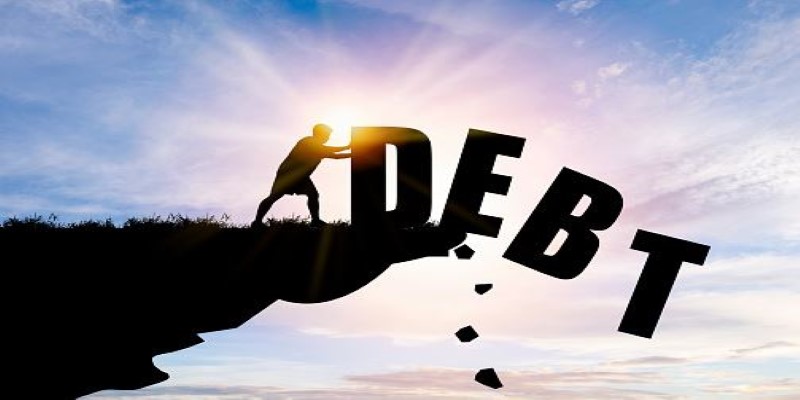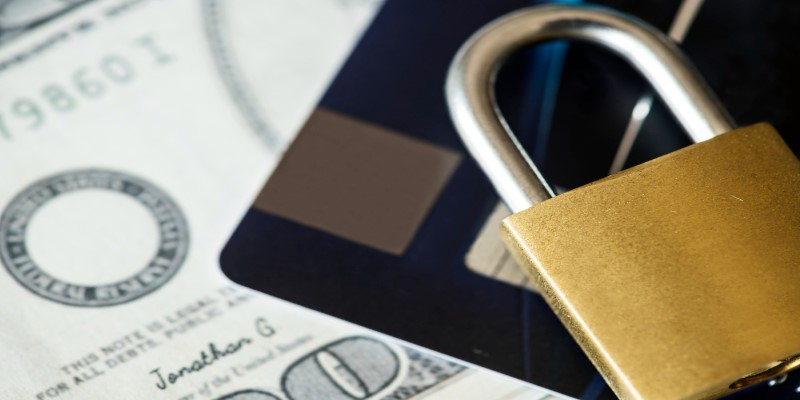Opting Out: The Top 9 Reasons to Refrain from Using Credit
May 05, 2024 By Triston Martin
In today's consumer-driven world, the allure of credit cards can be hard to resist. Yet, beneath the surface of convenience lies a myriad of potential pitfalls that may threaten your financial stability. Saying no to credit isn't just about denying yourself immediate gratification; it's a strategic move toward long-term financial health. By examining the motivations for refraining from credit, you can make educated choices that coincide with your financial objectives and principles. Let's delve into the compelling reasons why avoiding credit might just be the right choice for you.
Exploring Reasons to Say No to Credit
When it comes to making sound financial decisions, saying no to credit can offer numerous advantages. Let's delve into some compelling reasons why avoiding credit might be the right choice for you.
Avoiding Debt Traps
When you use credit cards, it's easy to lose track of your spending and end up accumulating debt without realizing it. Credit cards offer the illusion of having extra money to spend, but in reality, you're borrowing money that you'll need to pay back later with interest. This can quickly spiral out of control if you're not careful, leading to a cycle of debt that's hard to break free from. By saying no to credit, you avoid this trap altogether and spare yourself the stress and financial burden that comes with it.
Building Financial Discipline
Saying no to credit forces you to be more mindful of your spending and develop stronger financial discipline. When you're limited to using cash or debit cards, you're forced to live within your means and prioritize your expenses. This can help you become more conscious of where your money is going and make better choices about how to allocate it. Over time, practicing this kind of discipline can lead to healthier financial habits, such as budgeting, saving, and avoiding unnecessary purchases.
Protecting Your Credit Score
Despite common assumptions, refusing credit can ultimately improve your credit score over time. Every time you apply for a new credit card or loan, a hard inquiry is made on your credit report, which can temporarily lower your score.
Additionally, carrying high balances on your credit cards can negatively impact your credit utilization ratio, another important factor in determining your creditworthiness. By avoiding credit altogether, you eliminate the risk of these negative impacts on your credit score and maintain a healthier financial profile.
Living Debt-Free

Perhaps the most compelling reason to say no to credit is the freedom that comes with living debt-free. Without the burden of monthly credit card bills or loan payments, you're free to live life on your terms. You can pursue your passions, travel the world, or save for the future without being weighed down by financial obligations. This sense of liberation and independence is priceless and can greatly enhance your overall well-being.
Avoiding Interest Charges
When you use credit cards, any balances you carry from month to month accrue interest charges. These interest charges can quickly add up, making your purchases significantly more expensive in the long run. By saying no to credit and using cash or debit cards instead, you avoid these interest charges altogether.
This means that the price you see is the price you pay, without any additional costs tacked on. Over time, avoiding interest charges can save you a substantial amount of money that can be better used for savings or investments.
Reducing Financial Stress
Dealing with debt and financial obligations can be incredibly stressful, impacting your mental and emotional well-being. By saying no to credit and living within your means, you reduce the financial stress in your life. Without the burden of debt hanging over your head, you can enjoy greater peace of mind and focus on the things that truly matter to you.
Whether it's spending time with loved ones, pursuing your passions, or simply enjoying life, reducing financial stress allows you to fully embrace the present moment and live more authentically.
Avoiding Overspending
Credit cards can make it all too easy to overspend, as they provide immediate access to funds that may not actually be available to you. It's tempting to splurge on unnecessary purchases or luxuries when the amount of cash does not limit you in your wallet.
However, this can lead to financial strain and regret down the line. By saying no to credit and sticking to a cash-only or debit card approach, you're forced to be more mindful of your spending and prioritize your purchases.
Maintaining Financial Privacy

When you use credit cards, you're essentially handing over a trail of your spending habits to credit card companies and other financial institutions. Every transaction you make with a credit card is recorded and stored, which can potentially compromise your financial privacy.
By saying no to credit and opting for cash or debit cards instead, you can maintain greater control over your financial information. Cash transactions are typically more private and don't leave a digital footprint, giving you added peace of mind about who has access to your spending data.
Avoiding Temptation of Impulse Purchases
Credit cards can be a breeding ground for impulse purchases, as they provide instant gratification without immediate consequences. It's all too easy to succumb to the temptation of buying something on a whim when you're not directly parting with physical cash.
However, these impulse purchases can quickly add up and derail your budgeting efforts. By saying no to credit and relying on cash or debit cards, you're forced to think twice before making a purchase.
Conclusion
Saying no to credit offers a myriad of benefits for your financial well-being. Avoiding debt traps, developing financial discipline, and protecting your credit score are crucial steps in building a stable and secure financial future. Additionally, living debt-free, avoiding interest charges, and reducing financial stress can enhance your overall quality of life. Embracing a cash-only or debit card approach empowers you to make conscious financial decisions and live authentically.

Business
The Three Keys to Making Your Card Program Successful
Discover the three keys to success for your commercial card program: strategic implementation, robust controls, and data-driven optimization. Maximize benefits and drive value
Learn More
Investment
What is Break-Even Analysis?
According to the break-even analysis definition, it seems to be used in economics to ascertain the optimal cost structure for a business or the required sales volume. When a business reaches break-even, it has covered its costs and made no net gain or loss.
Learn More
Business
Enhance Credit Risk Management with Effective Advanced Assessments
This article discusses how organizations can build confidence in their credit risk strategies by using advanced assessments. Learn how credit risk management has evolved, explore the significance of key components like the Probability of Default (PD) and Loss Given Default (LGD), and understand how tools like the CAMEL rating system and modern credit models contribute to better risk management.
Learn More
Banking
A Guide to Opening a Swiss Bank Account in 2022
For the most part, Swiss banks maintain their reputation for privacy and security. However, foreign nationals who utilise private banking services should be aware of recent modifications. Since Swiss banks are reluctant to cooperate with foreign clients, top-secret accounts are passed. Still, Swiss bank accounts may be beneficial to the American people. Wealth management is a major industry in Switzerland.
Learn More
Banking
Opting Out: The Top 9 Reasons to Refrain from Using Credit
Uncover why avoiding credit could lead to financial freedom. Explore reasons to say no to credit cards and live debt-free.
Learn More
Banking
Unveiling the Truth: An In-depth Review of Credit Saint
Credit Saint offers personalized credit repair and coaching to help improve credit scores and ensure long-term financial health.
Learn More